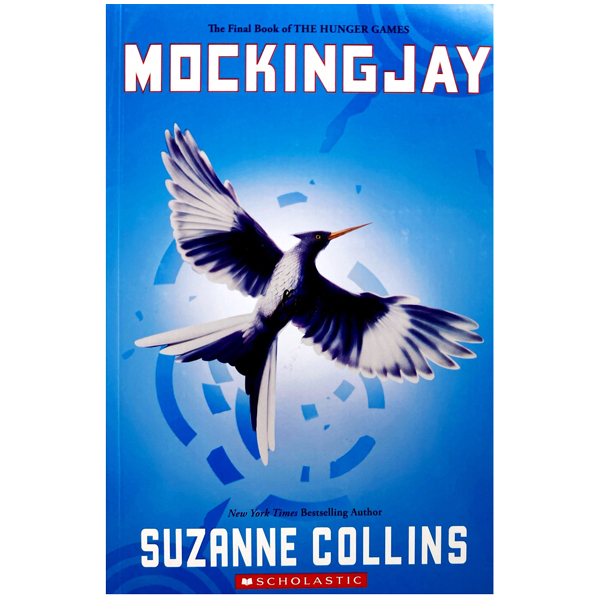The Hunger Games Book: A Deep Dive into Suzanne Collins' Dystopian Masterpiece

Suzanne Collins’ The Hunger Games has transcended its young adult fiction origins to become a global phenomenon, impacting literature, film, and popular culture. This in-depth exploration delves into the novel’s compelling narrative, its enduring appeal, and its significant cultural footprint, examining key aspects through the lens of various thematic categories: Books, Authors, Reading and Learning, Libraries, and Cultural Impact.
1. Books: Genre, Impact, and Enduring Popularity
The Hunger Games, the first installment in a trilogy, falls under several literary genres. It’s primarily classified as young adult dystopian fiction, but elements of science fiction, adventure, and even romance contribute to its rich tapestry. The novel’s setting, Panem – a post-apocalyptic North America ruled by the oppressive Capitol – immediately establishes its dystopian nature. This world, characterized by stark inequality and brutal survival-of-the-fittest games, is both captivating and disturbing. The compelling narrative is tightly woven, leaving readers breathlessly anticipating the next chapter.
The book’s success isn’t simply due to its thrilling plot. Collins masterfully crafts believable characters, exploring themes of survival, rebellion, and the complexities of human nature. Katniss Everdeen, the protagonist, is a particularly compelling character. Her fierce protectiveness of her family, her resourcefulness in the face of unimaginable cruelty, and her gradual evolution from survivalist to reluctant revolutionary make her relatable and inspiring. Peeta Mellark, the male tribute from her district, provides a counterpoint, representing compassion and empathy. Their complex relationship forms a central emotional core of the story, adding another layer of depth to its already intricate plot.

The novel’s enduring popularity is attributed to its accessibility across age ranges, its thought-provoking themes that resonate with readers of all backgrounds, and its ability to provoke discussions on social and political issues. It’s frequently found on bestsellers lists, making it a staple in both physical and digital libraries. Its impact on the young adult dystopian genre is undeniable, inspiring countless imitators while maintaining its unique identity as a groundbreaking work. The book’s consistent presence in book reviews also underscores its enduring relevance and quality. It sparked a significant increase in interest and production of books within the dystopian and young adult fiction genres, marking a notable shift in popular readership.

1.1. The Hunger Games as a Bestseller and New Release (In its Time)
Initially published in 2008, The Hunger Games quickly climbed bestseller lists, a testament to its immediate impact on readers. The initial printing was far exceeded by demand, reflecting a significant market interest which led to the expansion of the print run. The book’s continued success cemented its status as a bestseller, and it remains widely read and discussed even years after its initial release. Its impact on the literary market is still felt in terms of inspiration and impact on later titles.
1.2. Book Reviews and Literary Significance
Critical reception of The Hunger Games was overwhelmingly positive, with praise directed at Collins’ writing style, her compelling characters, and the thought-provoking themes explored. Many reviews highlight the suspenseful plot, leaving readers wanting more. The book’s literary influence is profound, particularly within the young adult dystopian genre, inspiring a wave of similar novels. It’s a book frequently reviewed and analyzed, establishing its place in literary conversations.

2. Authors: Suzanne Collins and her Creative Process
Suzanne Collins, the author of The Hunger Games, has a background in children’s television writing, which may have influenced the visual and dramatic elements of her novels. Her experience working on shows like Clarissa Explains It All likely contributed to her ability to craft engaging and relatable characters that are instantly recognizable to many audiences. Understanding her background can offer insight into the visual and dramatic elements within The Hunger Games.
Collins’ writing style is characterized by its pacing, clarity, and emotional resonance. The descriptions are vivid, immersing the reader in Panem’s harsh and captivating reality. Her storytelling techniques effectively build tension and suspense. She balances description and action skillfully, allowing readers to both experience the world through Katniss’s eyes and keep turning pages with its relentless plot.
Collins’ inspiration for The Hunger Games is rooted in various sources, including reality television, historical events, and her concern with the impact of violence and war on young people. The intertwining of reality television and the brutality of war provided a core concept for the novel, forming the basis of the Hunger Games themselves. Exploring these inspirations provides important context to the themes and story behind the novel.
2.1. Suzanne Collins’ Biographies and Famous Works
Collins’ writing career spans several successful books, including the Underland Chronicles series for middle-grade readers. The Hunger Games trilogy represents her most famous and widely recognized work. Her biography can provide further detail for readers interested in knowing more about her life and work.
2.2. Suzanne Collins’ Writing Style and Inspirations
Collins’ deft use of language and narrative structure makes The Hunger Games easily accessible and highly engaging, regardless of the readers’ background. Her clear, direct prose style successfully conveys the emotional intensity of the story without sacrificing narrative speed. The book’s success is a testament to both her narrative skill and her insightful social commentary.
3. Reading and Learning: Summaries, Educational Value, and Life Lessons
The Hunger Games offers more than just entertainment; it provides opportunities for reflection on complex themes. A summary of the novel can be used to understand the core plot points and the various character arcs presented. However, its educational value transcends simple plot summary. It sparks discussions about societal inequality, the ethics of violence, the nature of power, and the importance of rebellion against oppression.
The novel’s depiction of Panem’s oppressive regime serves as a cautionary tale, prompting critical thinking about the dangers of unchecked authority and the abuse of power. It also explores the impact of propaganda and the manipulation of information. The Hunger Games, as a televised spectacle, act as both commentary and warning against the potential negative effects of mass media.
Katniss’s journey is replete with life lessons. Her resourcefulness, courage, and resilience in the face of adversity demonstrate the strength of human spirit. The story also explores the complexities of love, loyalty, and sacrifice, offering valuable insights into human relationships. These characters and their journey teach readers important lessons about love, survival, and resilience in the face of adversity.
3.1 Summaries and Educational Value
The novel’s intricate plot, complex characters, and thought-provoking themes are widely discussed in academic and educational settings. Many literary scholars have focused on analyzing the novel’s themes and messages to draw important lessons from the text.
3.2 Life Lessons and Reading Habits
The Hunger Games encourages readers to critically engage with the text and reflect on the novel’s various themes and characters. It is also a compelling story, suitable for discussion across different learning environments. The novel’s impact extends beyond its initial readership and continues to influence reader habits and the conversations surrounding such works.
4. Libraries: Accessibility and Preservation
The Hunger Games is readily available in various libraries, both public and digital. Its popularity ensures it’s frequently checked out, underscoring its appeal to readers of all ages. The book’s accessibility highlights its importance and its appeal in many different areas. Digital libraries have also made the book extremely accessible to a wide audience.
The book’s ongoing presence in libraries also points to its value as a piece of popular culture and literature. It’s a text that will likely be preserved and studied for years to come. The novel’s availability in various formats (physical and digital) highlights its potential to remain relevant across many different platforms. Preservation efforts will help ensure this continues into the future.
5. Cultural Impact: Literary Influence, Adaptations, and Communities
The cultural impact of The Hunger Games is substantial. Its success launched a film franchise, demonstrating its adaptability to different media. The film adaptations have further popularized the story, bringing it to an even wider audience and influencing discussions. The movies, in turn, impacted the novel’s popularity, prompting further conversation surrounding the text.
The novel’s influence extends to other areas of popular culture, inspiring video games, fan fiction, and cosplay. It has sparked significant conversations around many different social and political issues and continues to do so today. This influence reaches far beyond the literary world.
Online communities dedicated to The Hunger Games showcase the book’s ability to foster connections among readers. These communities facilitate discussions, share interpretations, and celebrate the shared experience of engaging with the novel’s themes and characters. The book’s ongoing impact is reflected in its cultural conversations, continuing to prompt discourse and analysis.
5.1 Literary Influence and Adaptations
The novel’s success has led to numerous imitators, demonstrating its significant influence on the dystopian fiction genre. These imitators frequently highlight the same themes, though this has also led to critiques regarding originality. The Hunger Games remains a unique and groundbreaking work.
5.2 Awards and Communities
While The Hunger Games may not have won numerous prestigious literary awards, its enormous popularity and cultural impact speak to its significance. The online communities dedicated to the series further demonstrate its cultural impact and ongoing influence. The continued engagement and discussion regarding the text solidifies its place in popular culture.
In conclusion, The Hunger Games stands as a remarkable achievement in young adult literature, possessing a compelling narrative, thought-provoking themes, and a significant cultural footprint. Its enduring popularity is a testament to its quality, its resonance with readers, and its ability to spark important discussions across various social and political contexts. The book’s influence continues to permeate literature, film, and popular culture, ensuring its place as a significant cultural artifact for years to come.